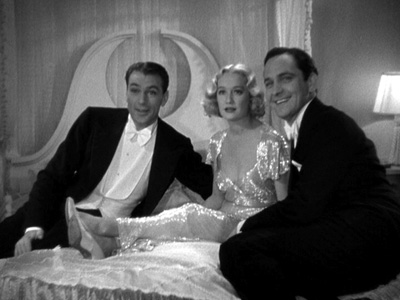
As much as I admire Ernest Lubitsch as a subversive force in 30s Hollywood, especially for The Man I Killed and Trouble in Paradise, I keep coming back to a particular anti-Lubitsch argument made to me by Elaine May, of all people, the one time I was lucky enough to meet her (in Bologna the summer before last). According to her argument, if I remember it correctly, Lubitsch pretended to be more daring, free, and worldly and less middle-class than his films actually were; her main example was Heaven Can Wait, which I suspect irked her in part on feminist grounds. When I asked her if she meant that Lubitsch was roughly akin to someone like H.L. Mencken, she said, “Exactly.”
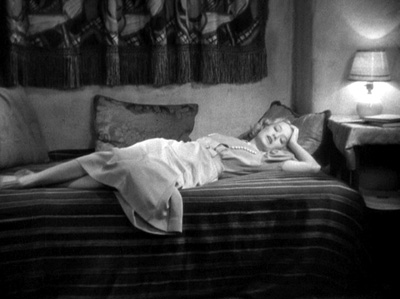
I remembered this conversation when I recently went through Criterion’s excellent two-disc edition of Lubitsch’s Design for Living (1933), including an interesting interview with Joseph McBride about the script that I saw before reseeing the feature, and William Paul’s superb analysis of both Trouble in Paradise (1932) and Design for Living, which I saw just afterwards. McBride is very good about Lubitsch’s collaboration(s) with Ben Hecht (screenwriter) and Noel Coward (playwright), and Paul is especially acute about the way the usual terms of praise heaped on Lubitsch (such as “sparkling” and “frothy”), which often relate to food and drink metaphors, are actually instruments for undermining the seriousness beneath his playfulness. Read more
From the Chicago Reader (June 17, 1988). — J.R.
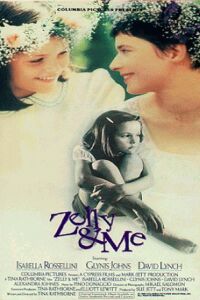
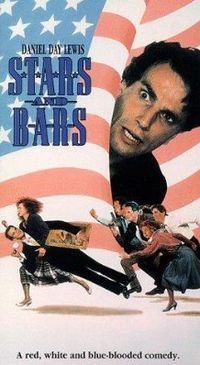
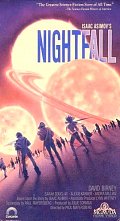
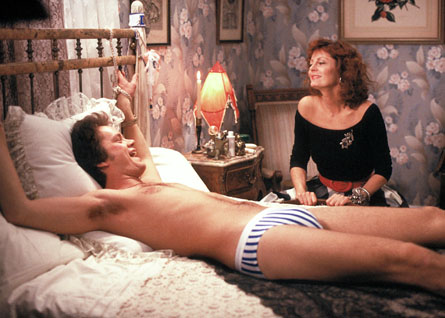
BIG BUSINESS
* (Has redeeming facet)
Directed by Jim Abrahams
Written by Dori Pierson and Marc Rubel
With Bette Midler, Lily Tomlin, Fred Ward, Edward Herrmann, Michele Placido, Daniel Gerroll, and Barry Primus.
RED HEAT
** (Worth seeing)
Directed by Walter Hill
Written by Harry Kleiner, Hill, and Troy Kennedy Martin
With Arnold Schwarzenegger, James Belushi, Peter Boyle, Ed O’Ross, Larry Fishburne, and Gina Gershon.
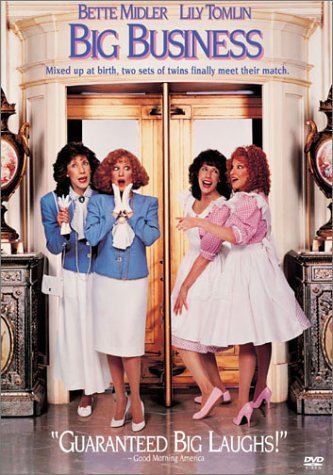
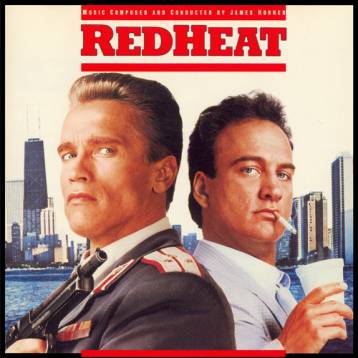
The silly season of summer releases is fully upon us, that time of year when expensive potboilers tend to be the only movies out there demanding our attention. Two interesting-sounding films that might have enlivened this year’s doldrums — Zelly and Me and Stars and Bars, both associated with David Puttnam’s brief stint as head of Columbia — have been unceremoniously dumped by their distributors in suburban Hillside. Paul Mayersberg’s perversely fascinating Nightfall — a head-scratching, low-budget blend of Isaac Asimov, Raul Ruiz, Jasper Johns, and psychedelic Corman movies of the 60s — departed for oblivion (or perhaps for video) before I could review it. What’s left on the table, apart from the delightful Bull Durham, are two mindless romps, each of which makes use of that veritable standby, the double plot. Read more
From the Chicago Reader (July 19, 1991). — J.R.
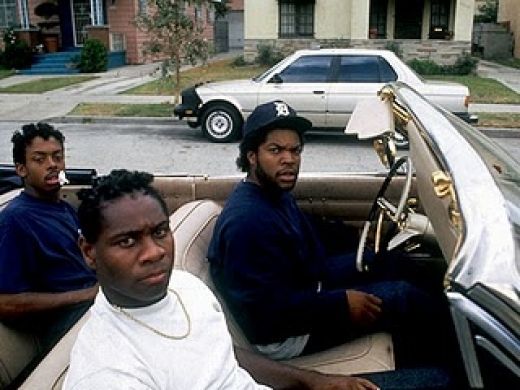
BOYZ N THE HOOD* (Has redeeming facet)
Directed and written by John Singleton
With Cuba Gooding Jr., Ice Cube, Morris Chestnut, Larry Fishburne, Angela Bassett, Nia Long, and Tyra Ferrell.
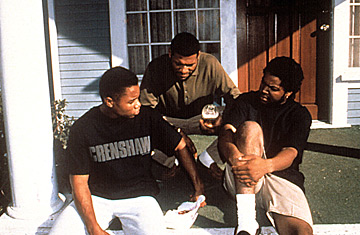
It’s been estimated that at least 19 pictures by black directors will be released in the U.S. this year. That’s less than 5 percent of the total number of features, but still more than the entire output of black-directed movies of the 80s. So far we’ve had New Jack City, The Five Heartbeats, A Rage in Harlem, Jungle Fever, Up Against the Wall, Straight Out of Brooklyn, and now Boyz N the Hood; still to come are Livin’ Large, Talkin’ Dirty After Dark, Hangin’ With the Homeboys, True Identity, House Party 2, Juice, Go Natalie, Daughters of the Dust, Street Wars, Chameleon Street, Perfume, and The Three Muscatels.
Some reviewers have been treating this wave of black pictures as some sort of Golden Age. In terms of the actors, life-styles, slang, and neighborhoods hitting the screen, they may have a point. It’s also true that a sense of urgency in getting a message out gives some of these pictures a vitality and authenticity that they wouldn’t otherwise have; even a movie as technically feeble as Straight Out of Brooklyn has some claim on our attention for this reason. Read more










